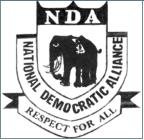Sierra Leone Oil Refinery must be reopened~!
The Sierra Leone Petroleum Refining Company was opened in 1970 as a joint business venture between the government of Sierra Leone and other major international oil companies like BP, Mobil, Texaco, and Shell. Government had a 50% vested interest while the subsidiary companies had 50% as well. But in 1992, Sierra Leone’s only oil refinery shut its doors and sent over 138 workers home because government no longer had the foreign exchange earnings to operate the facility. (Photo: Mohamed C Bah, NDA Presidential aspirant)
The flames that used to burn atop the refinery’s “exhaust pipes” were visible evidence of the attractive technological capability of our vibrant nation. Infact, the refinery has the capacity of producing about 450,000 tons of crude oil per year. But mismanagement, and a poor feasibility study before construction in 1961, lack of access to capital, the fluctuating crude oil prices and poor strategic planning led to the demise of the Sierra Leone Petroleum Refining Company (SLPRC) – a symbol of our industrial advancement.
However, that facility produced one of the best Sierra Leonean engineers in modern Africa. Their innovation sparked worldwide research into the engineering capability and potential investment opportunities of some transnational corporations. Perhaps, the most impeccable records of the engineers at SLPRC were their ability to repair the mechanical and electrical problems at the plant under the amazing eyes of both BP and Shell expatriates.
Indeed, Sierra Leone is strategically located along the West coast of Africa, where it is positioned to be a supply market in the US, Europe and the rest of Africa. The refinery is close to a deepwater harbor with international shipping lanes and can even access multiple oil producers from the gulf of Guinea to South Africa. Even the USA and other nations have offered guaranteed market as they continue to encourage oil exploration in West Africa. Thus, is Sierra Leone utilizing the advantage of an oil refinery with the prospect of becoming an oil exporter in the near future?
Almost two decades now, no elected government in Sierra Leone has made serious effort to reopen the refinery, boost production to 10, 0000 barrel a day, (its original capacity utilization), employ Sierra Leoneans and ease the price of fuel consumption to the average Sierra Leonean. There may be proposals, workshops, new feasibility studies, memorandums and promises, but the lack of implementation have rendered every attempt to revamp the rusty and decaying industry virtually impossible.
The lack of strategic vision, capital investments and proper planning continue to postpone the reopening of Sierra Leone’s first oil industry. Today, the physical structure and noiseless machines give us some clues into how a prospective giant of “technological transfer” sits in limbo and is still crying out for development.
While, we consume about 9,000.00 barrel of oil a day, increasing production where we can sell excess fuel to neighboring Liberia and Guinea could be a huge source of dollar revenue for government. By negotiating about 75% investment in the refinery with other international corporations that are willing to partner and invest, government will be on a solid footing to increase production and reduce the now infamous “per liter” cost of fuel. If we judiciously award contracts to both Sierra Leoneans and non-Sierra Leoneans, many of our jobless youths can find dignity to work and end the cycle of poverty they have known all their lives.
Nonetheless, the Chairman of the Board, who had overall responsibility, and happens to be the Minister of Finance who works with the Ministry of Trade and Industry are ill-equipped and lack the technical or organizational know-how to oversee the functioning of the plant. Some clear lines of authority should be established to facilitate the coordination between these functionless Ministries and ensure that competent decisions are made to keep it operational.
At a time when the escalating fuel price is causing enormous hardship to the people of Sierra Leone, reopening the doors of the Kissy Dockyard refinery will be a magical celebration. But does government ambitiously think big enough to do so? Do we, by the way, have a science and technology policy? With the looming possibility of oil exploration by Anadarko Company, what is Sierra Leone’s development plans to open six more refineries across the nation in the next 10 years?
Prospectively, we need an industrial policy that leads to the transfer of capital, management skills, technical know-how and technological acquisition. We also need a comprehensive technology and science policy that helps to build solid infrastructures, ensure compatibility and establish a national commission that coordinates technological investments in Sierra Leone.
It is so urgent that government must establish a working plan on the “Kissy Dockyard plant” within the next three months. The reduction of fuel prices and dispatching trade monitors to ensure compliance are nothing but temporal measures that addresses only the symptoms and not the real problems. Government must change their orientation to the way they see the fuel problems and adopt more practical objectives in seeking long term solutions. Here are some of the things that need to be done in a strategic and economic sense.
First, government should reopen the refinery at full capacity and rehire workers who have experience and expertise in the industry. The budget should come partly through an international investment loan and a national refurbishment financing program.
Secondly, an independent Petroleum Board comprising of field experts should be supervising the operation of the plant rather that these bottleneck ministries that conduct abstract performances and hardly consult each other on operational matters.
Thirdly, a project committee should review all contracts and should include clauses that specifically request the transfer of technological acquisition by host country and avoid the mistake made on the post investment phase of the project (SLPRC). Also, Sierra Leonean engineers must be part of any feasibility studies from the investment stage to the completion of every contract and even the signing of technical agreements.
Furthermore, the Sierra Leone Petroleum Refining Company must resume the processing of 100% Nigerian light crude which was suitable for the local market and desirable for the change in consumption pattern. It is also cheaper and Sierra Leone already has an established business and diplomatic relationship with the government of Nigerian.
Fourthly, government should buy core technologies necessary to keep the refinery independent and autonomous from transnational companies. Technical service agreements should be replaced by technological transfer and expatriates should provide learning resources to local Sierra Leoneans for future reliance and continuity.
Lastly, the availability of foreign exchange to buy crude oil and spare parts are the life blood of the refinery. Thus, a contingency reserve fund must be established by the Bank of Sierra Leone to address the foreign exchange problem. Government must develop a strategic petroleum reserve project to prepare for future emergencies such as natural disasters and unforeseeable global fuel crisis. The writing of “letters of interest” by the Ministry’s concern and holding conferences that are “window dressing” cannot resuscitate the life of Sierra Leone’s industrial giant-SLPRC. Concrete actions with practical approaches are the realistic plans that can produce good results.
Despite the shortage of a plant inspector and code welder for the past decades, the ingenuity and specialized talents of our engineers impressively meets international standards. From historical data, they are capable of maintaining and repairing the plant’s machinery. They are also capable of running the plant under safety codes and guidelines and even training other team to run similar refineries elsewhere in the country (when available).
But why is government not doing their part to providing the needed capital resources to run the refinery? Easing the suffering on the people should be one of the obvious reasons why SLPRC’s industrial doors must be open to investments and local productions. With a clear vision, access to capital, a large scale industrial expertise and strategic leadership, we can emerge as West Africa’s fastest growing oil refinery and top marketers of the sales of petroleum to neighboring countries.
Source: The International Development Research Center (IDRC): Technological Capability in Oil Refining in Sierra Leone.
by Mohamed C. Bah, NDA Presidential Aspirant
Stay with Sierra Express Media, for your trusted place in news!
© 2011, https:. All rights reserved.







